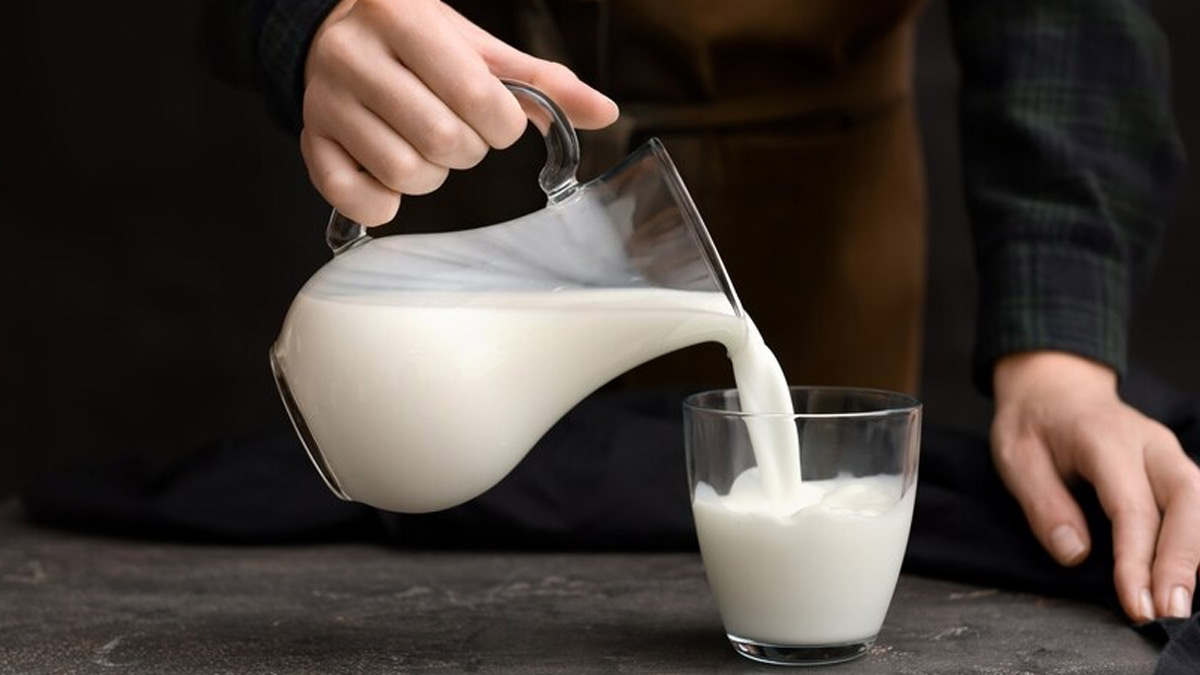
The sedentary lifestyle and unhealthy food choices are the major causes of rising cholesterol levels, leading to heart diseases. One of the significant contributors to heart disease is high cholesterol levels, particularly LDL (low-density lipoprotein) cholesterol, often referred to as "bad" cholesterol. However, making some lifestyle changes can help in lowering cholesterol levels and keep heart diseases at bay.
Table of Content:-
Like many others, are you too worried about the high LDL levels that recently appeared in your blood report? Here are five types of milk options for you to help lower bad cholesterol levels and reduce the risk of heart disease.
Soy Milk

Soy milk is one of the popular plant-based alternatives to cattle milk which can be a great choice for those who are looking to lower their cholesterol levels. Studies have shown that soy contains high plant compounds called isoflavones, which can help in reducing LDL cholesterol levels. Additionally, soy protein has been found to have a cholesterol-lowering effect, making soy milk a heart-healthy choice. According to Harvard Medical School, on average, consuming 25 grams of soy protein per day, over a six-week period, lowered LDL levels by about 3% to 4%, which is a small but still significant amount, adding that about three and a half cups of soy milk equals 25 grams of soy protein.
Almond Milk

Almond milk is another plant-based alternative that can help lower bad cholesterol levels. Almonds are rich in monounsaturated fats, which are known to reduce LDL cholesterol. Studies have shown almond milk is also low in saturated fat, making it a heart-healthy option. However, it is crucial to choose unsweetened almond milk to avoid added sugars. Sugars can have adverse effects on cholesterol levels. If you are looking to practice veganism, almond milk is a great choice for you to help you reduce your cholesterol.
Oat Milk

Oat milk is made from oats, which are rich in beta-glucans, a type of soluble fiber. Beta-glucans have been shown to reduce LDL cholesterol levels by interfering with the absorption of cholesterol in the intestines. Oat milk is also low in saturated fat and cholesterol, making it an excellent choice for those looking to improve their heart health.
Flaxseed Milk

Flaxseed milk is a lesser-known alternative that offers a range of health benefits, including lowering cholesterol levels. Flaxseeds are high in alpha-linolenic acid (ALA), a type of omega-3 fatty acid that has been shown to reduce LDL cholesterol levels. As per a study published by National Institute of Health, flaxseed milk is also a good source of fiber, which can help lower cholesterol levels even further.
Skim Milk
Skim milk, also known as fat-free milk, is a dairy option that is low in saturated fat and cholesterol. It contains all the essential nutrients found in whole milk, such as calcium and vitamin D, but without the added fat. Skim milk can be a good choice for those looking to lower their cholesterol levels while still enjoying the benefits of dairy.
Conclusion
Adding these milk options in your diet can significantly help you lower your bad cholesterol and reduce the risk of heart diseases. However, it is crucial to understand that milk is just one component of a healthy diet. If you are consuming these types of milk and on the contrary also consuming food which can increase your cholesterol levels, it will not help you reduce your LDL levels. Keeping a check on your overall diet along with regular physical activity and maintaining a healthy weight can help you reduce your cholesterol levels.
(Disclaimer: This article is for informational purposes only. We advise you to consult your healthcare provider if you have high levels of bad cholesterol.)
Also watch this video
How we keep this article up to date:
We work with experts and keep a close eye on the latest in health and wellness. Whenever there is a new research or helpful information, we update our articles with accurate and useful advice.
Current Version